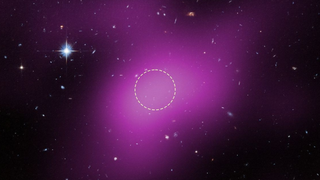Dark matter, the elusive search: Latest discoveries and news
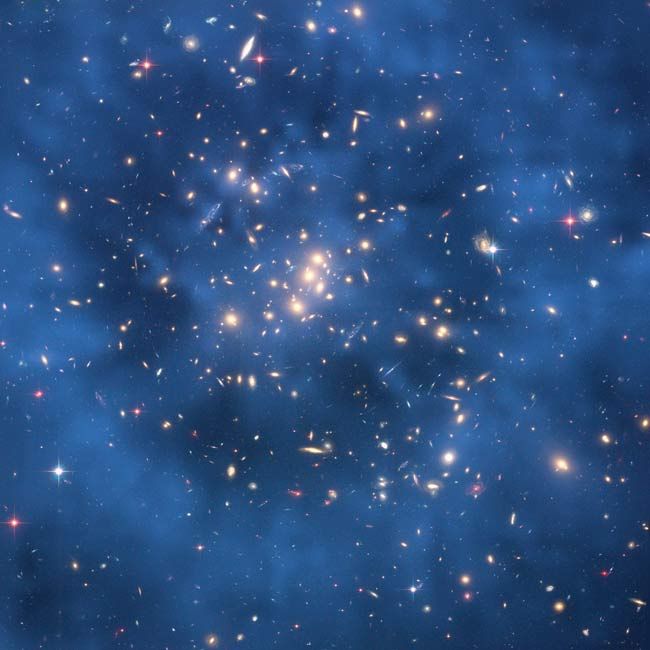
Roughly 80 percent of the mass of the universe appears to be dark matter: an invisible material that seems to interact with ordinary matter only through gravity, without emitting light or energy. Scientists cannot detect dark matter directly and don't yet know what it's made of, but they track its influence based on the motions of stars and galaxies. The presence of dark matter is necessary to explain the universe's current structure.
Related Topics: The Big Bang Theory, Black Holes, The Theory of Relativity in Space, Gravitational Waves
Latest about dark matter
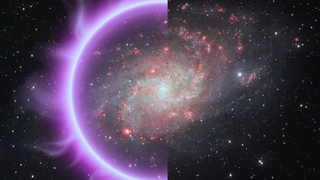
Does dark matter actually exist? New theory says it could be gravity behaving strangely
By Robert Lea published
"It highlights gravity's possible hidden complexity and invites a reevaluation of where dark matter effects originate."
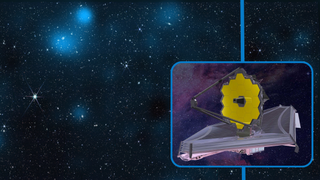
James Webb Space Telescope's view of 800,000 galaxies paints a detailed picture of dark matter
By Robert Lea published
Astronomers used James Webb Space Telescope data to determine the density of the universe's most mysterious "stuff."
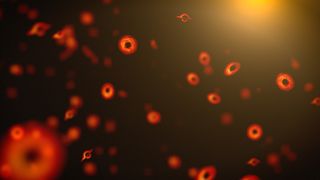
Did astronomers see a black hole explode? An 'impossible' particle that hit Earth in 2023 may tell us
By Robert Lea published
"If our hypothesized dark charge is true, then we believe there could be a significant population of primordial black holes, which would be consistent with other astrophysical observations, and account for all the missing dark matter in the universe."
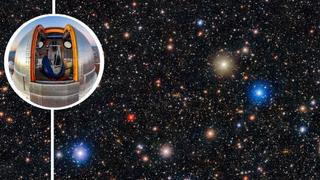
Scientists just got the clearest picture of the dark universe yet: 'Now the dream has come true'
By Robert Lea published
"These results from the Dark Energy Survey shine new light on our understanding of the universe and its expansion."

You're getting warmer! Hot dark matter could refine cosmic game of hide and seek
By Robert Lea published
"Dark matter can be red hot when it is born, but still have time to cool down before galaxies begin to form."
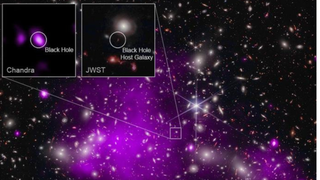
What are 'dark' stars? Scientists think they could explain 3 big mysteries in the universe
By Robert Lea published
"This is a structure we've never seen before, so it could be a new class of dark object."
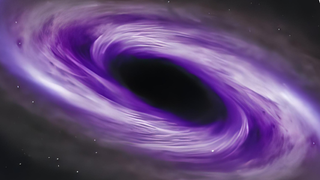
Astronomers baffled by 'mysterious disruptor' with a mass of 1 million suns and a black hole for a heart
By Robert Lea published
"This is a structure we've never seen before, so it could be a new class of dark object."
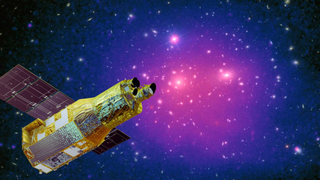
Is dark matter made of mysterious 'ghost particles?' Galaxy clusters could hold the answer
By Robert Lea published
"WIMPs are still the leading candidate for dark matter, but billions of dollars of experiments have been done, only getting stronger and stronger upper limits, so alternative scenarios have to be considered."
Breaking space news, the latest updates on rocket launches, skywatching events and more!

